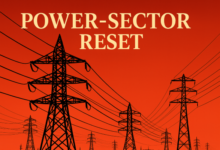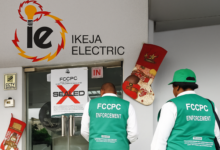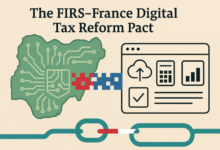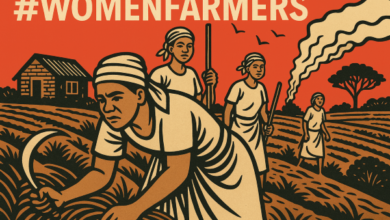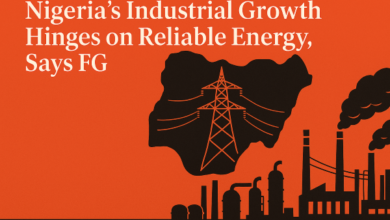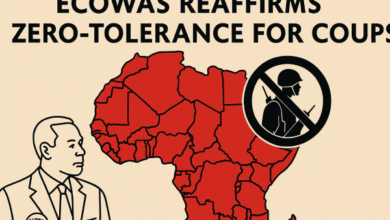May Day Blues: Nigerian Workers Decry Rising Hardship, Demand Urgent Policy Reset

As the world marks May Day 2025, Nigerian workers are sounding a collective alarm over the rapidly deteriorating standard of living, calling on the Federal Government to act swiftly and decisively to rescue the workforce from deepening economic despair.
From federal civil servants to informal transport operators, voices across Nigeria’s labour spectrum gathered in Ibadan to paint a picture of hardship — worsened by inflation, rising fuel prices, crushing taxes, and stagnant wages.
“We Have Given Our Best — Now Give Us a Future” – NLC Official
Mr. Samson Oloyede, a representative of the Nigeria Labour Congress (NLC), said the country’s workers have long “gone above and beyond” in service to the nation — yet are being repaid with suffering, not support.
“We are not just asking for better pay,” he stated. “We are asking for dignity, economic justice, and a social contract that works. Nigerian workers deserve more than slogans — they deserve solutions.”
Oloyede spotlighted the spiraling costs of food, transportation, electricity, and internet services as key drivers of worker impoverishment. With inflation eating into disposable income, he warned that morale within the workforce is at a breaking point.
“We’re Dying Slowly” – Voices from the Informal Sector
For many workers outside formal employment, the pain is even more pronounced.
Mr. Timi Olougbebe, a member of the Tricycle Association of Nigeria, shared a grim reality:
“Imagine buying a brand-new tricycle for ₦4 million on installment. How do you survive? Fuel prices have shot up, spare parts are unaffordable, and passengers can’t even pay the fares we charge. We are dying slowly.”
Olougbebe’s comments reflect the economic squeeze hitting millions of self-employed Nigerians who operate with zero government safety nets — even as they drive large swathes of the economy.
Civil Servants Say N70,000 Minimum Wage is a Mirage
Mrs. Modupe Ojo, a federal civil servant, dismissed the newly proposed ₦70,000 minimum wage as inadequate — calling it “a number that sounds big on paper but means nothing in the market.”
“Hyperinflation has eroded any gains. What can ₦70,000 really do when a bag of rice costs ₦80,000? Government must go beyond announcements and craft practical policies that reduce the cost of living,” she said.
Her colleague, Mr. Jimoh Adeleke, echoed the sentiment, urging the Federal Government to release the five months of wage award arrears in full rather than trickling payments over time.
“Even the backpay we are owed is being weaponized. Workers need relief now, not later,” he lamented.
Transport Workers: Import Duties and Fuel Deregulation Are Strangling Us
Kunle, a member of the National Union of Road Transport Workers (NURTW), laid the blame for operational strain squarely at the feet of government policies.
“Imported vehicles are now luxury items for commercial drivers. The high import duties and naira depreciation have priced us out, and subsidy removal has only made things worse,” he said.
BRANDECONOMY TAKE: A Workforce on the Brink
The 2025 May Day has become less about celebration and more about survival. Nigeria’s workforce is caught in a perfect storm of economic policies without cushioning, inflation without control, and reforms without results.
While the government promotes economic transformation and subsidy removal as long-term growth strategies, the short-term reality for workers is rising poverty and declining hope.
What Workers Want (Now):
- Revised minimum wage benchmarked to inflation
- Immediate payment of wage arrears
- Lower energy and telecom tariffs
- Reduced import duties on work-related tools and vehicles
- Transparent, worker-centered economic reforms


